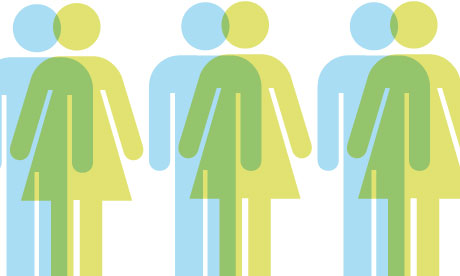
On 17 May 1990, the World Health Assembly of the World Health Organization (WHO) approved the removal of homosexuality from the list of the International Statistical Classification of Diseases and Related Health Problems.
The anniversary has since been observed as the International Day Against Homophobia, Transphobia and Biphobia to raise awareness and to advocate sensible public policies for lesbian, gay, bisexual and transgender people.
The theme for this year’s anniversary was “Together: Resisting, supporting, healing!” The theme was chosen to champion hope and calls for action to counter hateful stereotypes of LGBT persons.
According to latest statistics, Malaysia is one of 69 countries in the world that continue to have laws that criminalise homosexuality. The attacks and assaults on LGBT range from hate speech in social media to anti-LGBT campaigns in traditional media, including government programmes under the name of “rehabilitation”.
Apart from that, we can also see the evidence of the wide use of disinformation and misinformation techniques to defame and even criminalise the actions of those supporting the LGBT. We sometimes hear of anecdotal cases of members of the LGBT community being discriminated against and denied healthcare services and employment.
Across the world, discrimination is identified as one of the major barriers to achieving an equal and inclusive future for LGBT people. This includes Malaysia.
Discrimination refers to any sort of act or behaviour that distinguishes individuals based on age, sex, race, sexual orientation and gender identity. The primary forms of discrimination faced by the LGBT community are those based on sexual orientation and gender identity.
When we look around and reflect on some of our attitudes towards the LGBT – whether in schools, workplaces or in public – discrimination in the form of name-calling and bullying would be familiar to us.
As the subject of LGBT is regarded as taboo and the orientation as a form of “illness”, it is not surprising that discriminatory attitudes and prejudice are formed at a young age. Some children are taught that the behaviour of the LGBT is deviant and should not be tolerated. Such formation goes against one of the principles of education, that is to nurture mutual respect for one another.
In Malaysia, LGBT people are criminalised through many federal and state laws. What is shocking is that there are also government-initiated anti-LGBT programmes, most of which focus on rehabilitation and conversion of LGBT persons.
For instance, in 2016, the Islamic Development Department (Jakim) launched a five-year action plan titled Pelan Tindakan Menangani Gejala Sosial Perlakuan LGBT 2017-2021 (Action Plan to Address the Social Ills of LGBT Behaviour 2017-2021) to “curb” and “correct” LGBT behaviour, as opposed to acceptance and non-discrimination.
Such an approach is harmful and discriminatory, as it encourages others to carry out moral policing and intervene in the private and public lives of LGBT persons.
Such programmes continue, although these harmful practices have been widely rejected by global scientific bodies, medical institutions and human rights groups.
At a global level, Malaysia has so far rejected all recommendations related to the decriminalising of LGBT activities from the UN’s universal periodic review. This is a peer-review mechanism created by the UN Human Rights Council to monitor the human rights performance by the various member states. This is an irony, as Malaysia is vying for a seat on the 47-member UN Human Rights Council for the period 2022-2024.
As the government apparently endorses discrimination against LGBT persons, the Malaysian public too by extension are deemed to endorse such discrimination as the ‘right’ thing to do. While we may say that the religions that we profess are tolerant by nature and non-discriminatory, our behaviour towards the LGBT reveals the hypocrisy in practice.
There is a definite sense of misinformation and disinformation about the LGBT in society, and this can only be reduced through our collective action as a society. Politicians must set a good example in ensuring inclusivity and acceptance of diversity.
When competing moral values are brought into tension, I ask, who are we to become moral police and discriminate against the LGBT? What gives us the right to judge others? Are we not simply fellow members of a universal humanity?
Indeed, we are all fellow members of the human race, regardless of our ethnicity, religion, gender identity or sexual orientation.
Khoo Ying Hooi
Co-editor, Aliran newsletter
22 May 2021
| Thanks for dropping by! The views expressed in Aliran’s media statements and the NGO statements we have endorsed reflect Aliran’s official stand. Views and opinions expressed in other pieces published here do not necessarily reflect Aliran’s official position.
Our voluntary writers work hard to keep these articles free for all to read. But we do need funds to support our struggle for Justice, Freedom and Solidarity. To maintain our editorial independence, we do not carry any advertisements; nor do we accept funding from dubious sources. If everyone reading this was to make a donation, our fundraising target for the year would be achieved within a week. So please consider making a donation to Persatuan Aliran Kesedaran Negara, CIMB Bank account number 8004240948. |
